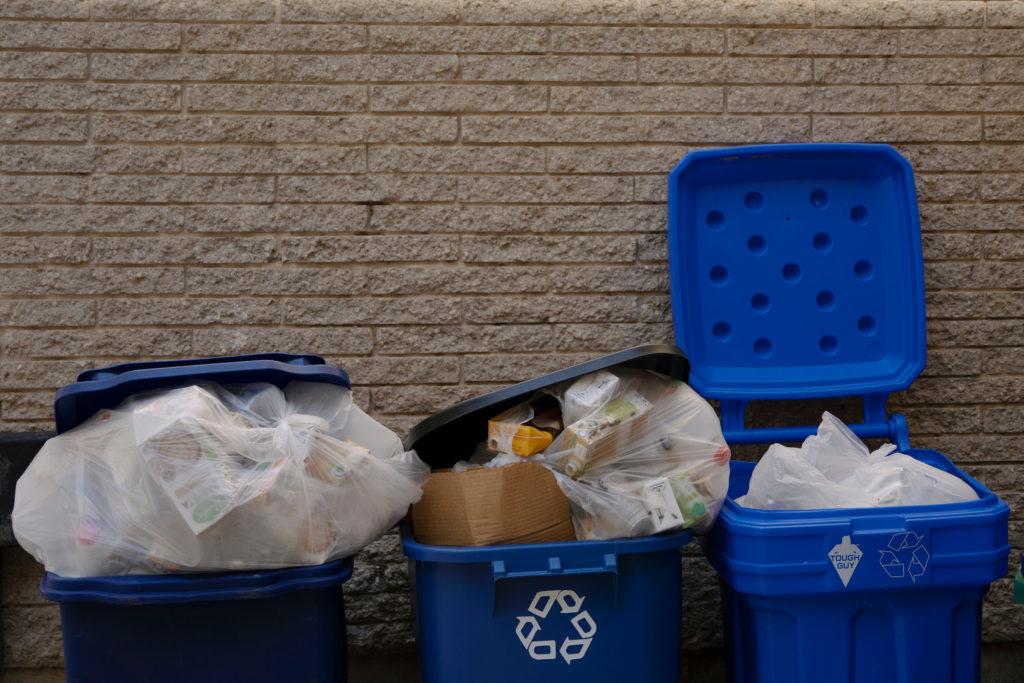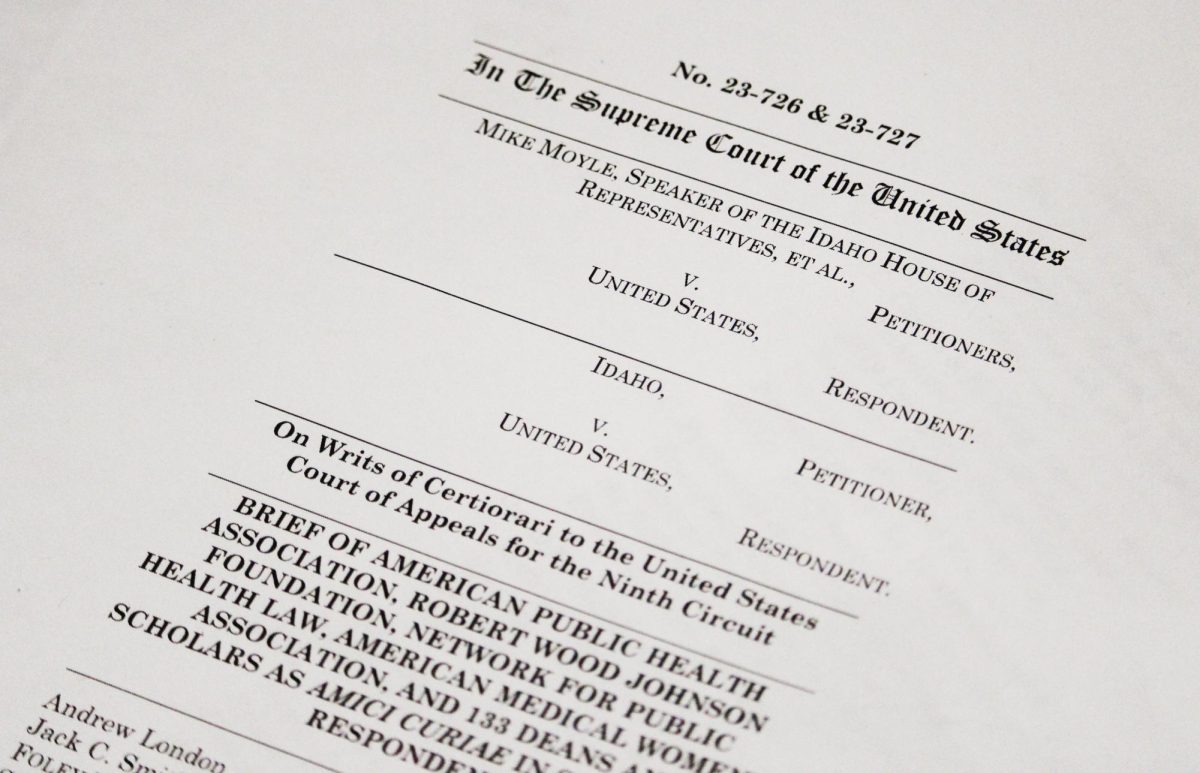Officials have not said how many GWorld vendors have stopped using single-use plastics more than six months after officials committed to begin phasing them out on campus.
Officials said GWorld vendors are required to find “available alternatives” for items like plastic utensils, straws, wrappers and bags in compliance with GW’s new policy to eliminate single-use plastics announced in June. In interviews, more than 10 GWorld vendors said officials never alerted them about the policy, and some businesses will continue distributing plastics to customers, while others have instituted their own initiatives to cut down on plastic use.
University spokesperson Crystal Nosal said officials are working to help GWorld vendors comply with the University’s policy, and most of these businesses are in agreement with the University’s commitment to ban single-use plastics.
“GW Dining is actively working closely with our retail tenants to bring them into compliance with the single-use plastics policy,” Nosal said in an email. “Most of the tenants are on board, though some are working through existing inventory, and once expanded, will utilize other alternatives to plastics where possible.”
Nosal said GWorld vendors like Carvings and Uptowner Cafe have made “great strides” in moving away from single-use plastics. She said Carvings switched all their plastic straws to compostable material and implemented a new filtered water filling station as a way to encourage students to use reusable water bottles.
Nosal said the University’s commitment to eliminate single-use plastics involves four simultaneous steps. She said these stages will include phasing out plastics in campus operations, eliminating plastics in community partners and businesses, focusing on “engagement and lifestyle choices” and generating dialogue with researchers and community partners about alternative solutions to single-use plastics.
Nosal said the University will continue working with GWorld vendors to encourage them to support the policy.
“We will continue to work with the tenants, and we are creating signage for retail tenants to post to show they are supporting GW’s SUP initiative with eliminating plastic bottles and phasing out products as alternatives become available,” Nosal said.
The University has already replaced plastic bottles with glass bottles or cans and plans to install at least one bottle-filling station in each University building.
“Community members have received and will continue to receive information via infomail email updates, GW Today stories, social media content, web updates, digital signage in residence halls, physical signage on campus and briefings to student leaders,” Nosal said.
Nosal declined to say how many GWorld vendors have completely eliminated single-use plastics.
In interviews, staff and managers from 11 GWorld vendors said the University has not informed them of their initiative to decrease plastics at restaurants around campus, while two said they received emails from the University to decrease plastic use.
Miguel Robago, the manager of Peet’s Coffee, said Peet’s implemented its own initiatives, independent from the University, to lower their supply of single-use plastics, now offering discounts to students who bring their own reusable cups. He said Peet’s also sells reusable cups and provides customers with paper straws.
He said the University did not reach out to Peet’s staff about eliminating single-use plastics. He said the business will continue using plastics, like coffee cup lids.
“We haven’t heard anything from them and we just recently opened back up again in August,” Robago said.
Judenal Mathks, the manager of District House’s Chick-fil-A, said he hasn’t been part of any communication with the University about eliminating single-use plastics since he started as manager this past month. He said Chick-fil-A is still using plastics like lids for their drinks, and any decision to remove plastics must come from the Chick-Fil-A company at large.
“We are a franchisee from Chick-fil-A, so we actually have to be in compliance with Chick-fil-A, so whatever decision that we take, we have to make sure truthfully is in compliance with that,” he said.
Mathks said the District’s Chick-fil-A could potentially eliminate single-use plastics next year if the Chick-Fil-A company at large adapts this initiative in their guidelines. Mathks said businesses are following a trend to phase out single-use plastics, even though some people complain about the taste of items from alternative materials, like paper straws.
“I feel like it’s very important that we eliminate plastics, but there are pros and cons,” Mathks said. “In past experience, I have people who say ‘I don’t like the paper, the taste of it,’ but it’s just like when they bought plastic, no one was used to plastic.”
Ahmad Harris, the manager of Roti, said he hasn’t received any notice from officials about reducing single-use plastics. He said Roti’s bowls and bags are biodegradable, but all of its utensils are made from plastic.
He said much of the Roti’s decisions only reach the storefront after corporate officials have granted approval.
“The really final decision is up to the people at the top, and then it has to come down to the rest of the storefronts,” Harris said.
Jeremy Pollok, the owner of Tonic, said the University first emailed the restaurant several months ago to inform them of GW’s policy restricting GWorld vendors from using single-use plastics. Pollock said he also received an email late last week from the University, reminding Tonic about GW’s since-use plastic policy.
He said last week’s email stated a University staff member would contact Tonic to ensure they are in compliance with the single-use-plastics elimination policy. He also said the email included information about who Tonic should notify if they have any questions about how to eliminate single-use plastics.
Pollok said Tonic’s containers holding condiments are the only single-use-plastic left in the restaurant after staff implemented glass water bottles and compostable to-go containers. He said Tonic is looking for another material to replace plastics, but there have been nationwide supply-chain issues for other alternative items during the pandemic.
Pollok said using compostable material is slightly more expensive than using single-use plastics, but the benefits to the environment outweigh the costs. About 10 million tons of single-use plastics end up in oceans each year, killing and endangering marine life, according to an article that Columbia University’s Climate School published last year.
“They cost a little more, but in the long run, really what’s going to cost us more as a society?” Pollok said.
Isha Trivedi and Nicholas Pasion contributed reporting.








